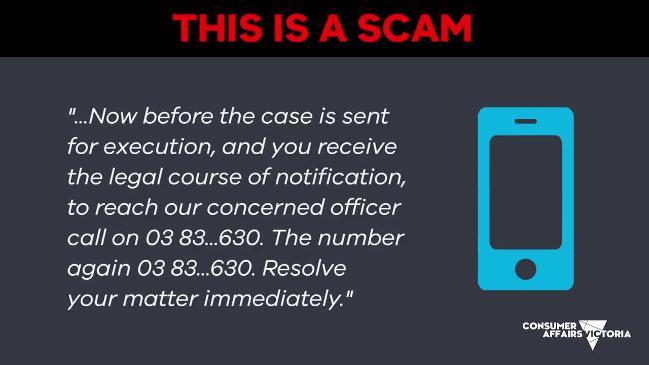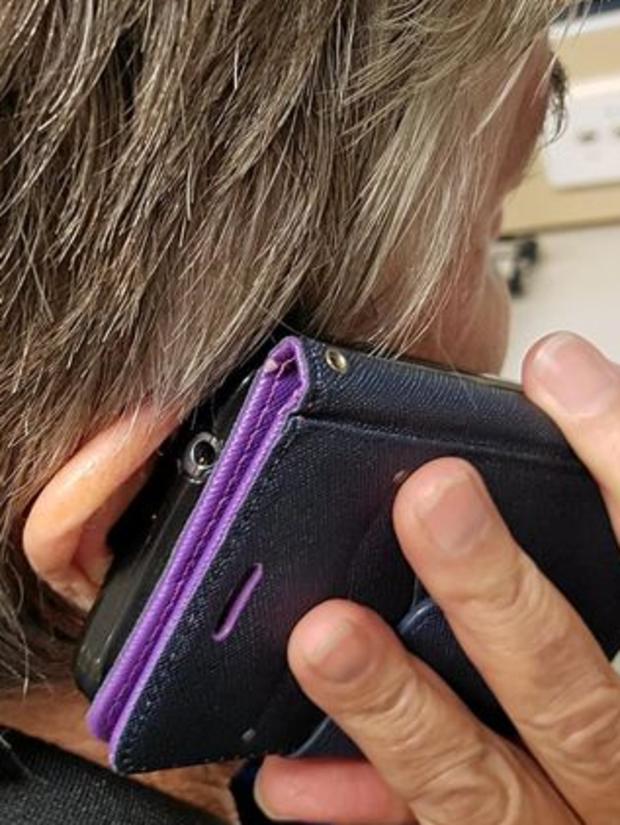Whatever you do, don’t call this number back
Scams have become more and more common across Australia in recent years, with sophisticated new methods being used.

QLD News
Don't miss out on the headlines from QLD News. Followed categories will be added to My News.
Scams have become more and more common across Australia in recent years, with sophisticated new methods being used.

In 2017 Queenslanders were warned of a sophisticated Central African phone scam, with Queensland Police Senior Sergeant Steve Smith saying people had started receiving calls from a number based in Cameroon.
All your scam questions answered below >>>
It was reported that the ‘call-back scam’ involved an extremely short call at times of great inconvenience, giving little or no opportunity to answer the phone.
When the receiver of the missed call dials back, they start to be stung with international premium call rates as the scammers set up a toll number.
Since then there have been even more sophisticated methods used in scams, including social media and text messages, though ways to combat the scams have been outlined.

There have also been instances of door knock scams, where people pose as company employees in a bid to gain personal information.
Even Australia Post has reported attempts to gain information as scammers pose as employees via text message.
There are also romance scams in which scammers befriend victims before attempting to access information such as credit card details.
Your scam questions answered
What are scams and how do they work?
A scam is a trick to steal your money or personal information. Scams target everyone and anyone can become a victim.
Scams constantly change, as scammers take advantage of recent technology, products and services, or trending news topics to make their scam seem real.
Source: Australian Government Services Australia
How do scammers get my number?
Scammers often use phishing scams to try to trick you into giving away your personal information by pretending to be us or other organisations. Scammers can contact lots of people at the same time by sending text messages, emails or social media messages that have a link or attachment. You may also know this as spam.
Don’t open any links or attachments in messages pretending to be us. If you open a link or attachment, it might take you to a fake website designed to steal your personal information.
Source: Australian Government Services Australia

What are spoof numbers and can your phone be spoofed?
Call spoofing is where a phone scammer will falsify the calling number to trick a user into picking up or making a call look more legitimate.
Scammers know that people are more likely to pick up the phone to a number that looks legitimate, rather than one that appears as private, blocked, or from overseas.
Scammers may also call you from spoofed numbers that are “adjacent” to yours. It’s a social engineering tactic designed to increase the chances you’ll pick up the phone. It’s a new type of spoofing that uses your so-called ‘number neighbours’ against you.
For example, if your number is 0400 000 000, they may call you from 0400 000 001 to increase the chances you’ll pick up.
If your number has been spoofed by a scammer, you’ll often find out right away.
If a victim were to redial the number they were scammed from, they would reach the rightful owner.
If that owner is you, a barrage of unexpected abuse might come your way . Someone might even just call you out of the blue to ask why you tried to scam them or demand to know why you’re harassing them.
That’s a good indicator your number has been used in a spoofing scam.
Source: Telstra
How do I recognise phone scams and what do I look out for?
It’s probably a scam if:
A call or text sounds too good to be true. To convince you to send money, scammers may offer you products at low prices, say you have won a prize or that there is money waiting for you.
Someone you don’t know has your personal details. A scammer might have stolen your personal details, and use these to convince you they are a trusted business (for example, pretending to be your bank or telco provider).
A message contains links or attachments. Do not click on links or attachments in text messages unless you are 100% sure it is a legitimate message. Scammers try to catch you off guard and send you to scam websites. Always make sure the sender is who they say they are, and that you know what you are opening.
You feel pressured to act quickly. Scammers use techniques to rush you. For example, they may try to convince you it is an emergency and something bad will happen if you don’t act now. They may also offer discounts on products, but only if you act urgently.
Someone requests money in an unusual or specific way. Scammers may ask you to set up a new bank account or PayID to transfer money, or to be paid using gift cards or crypto currency. Your bank will never ask you to open a new account to keep your money safe.
Source: Australian Communications and Media Authority

What are the most common scams in Australia?
In April 2023 major telecommunication companies were reporting unprecedented scam numbers, revealing they blocked more than 66 million SMS scams and hundreds of millions of scam emails each month.
According to Australian Competition and Consumer Commission data, Australians reported more than 57,000 scams during the first two months of 2023, costing them a whopping $97m.
Phone call, SMS and email scams skyrocketed, with Scamwatch reporting a new highly sophisticated banking scam using state-of-the-art technology that makes the caller ID appear to be a bank’s legitimate phone number.
In 2022 it was revealed Australians lost $3.1 billion to scams, an 80 per cent increase on total losses recorded in 2021. And these were just the reported losses, with previous research by the Australian Competition and Consumer Commission (ACCC) showing that more than 30 per cent of people do not report scams at all.
In 2017 Queenslanders were warned against a sophisticated Central African scam, with Queensland Police Senior Sergeant Steve Smith saying people had started receiving calls from a number based in Cameroon. The ‘call-back scam’ involved an extremely short call at times of great inconvenience, giving little or no opportunity to answer the phone.
Tax time scammers were warming up for their peak swindling season in 2024, and a study by Australia’s biggest bank suggests many of us were not prepared.
The Commonwealth Bank is urging people to increase their scam awareness after its research found nine out of 10 people are confident they can spot a fake SMS or email, but its testing found only 69 per cent of adults could identify all the tax scams they were shown.
Police in 2023 urged Queenslanders to stay on the alert for a “heartless scam” particularly targeting the elderly.
Fraudsters claiming to be from the victim’s bank call them ask them to withdraw cash, telling them that a representative from the bank will then collect the money from their home address.

What do I do if I think I've been scammed?
The ATO has methods to report suspected scams:
If you've received a scam email or SMS, do not click on any links, open any attachments or download any files. The ATO will never send an unsolicited SMS that contains a hyperlink.
If you did pay money or provide sensitive personal identifying information to the scammer, phone the ATO on 1800 008 540 to report it.
You should also:
- make an official report to your local police
- contact your bank or financial institution if you provided your credit card or bank details to the scammer
- contact the bank you made the payment to and lodge a fraud report.
Even if you didn't pay you can report the scam to ReportScams@ato.gov.au.
You can report other types of scams to ScamwatchExternal Link, or contact the Australian Cyber Security CentreExternal Link to report cybercrime.
Source: ATO
How can I protect myself from scams?
National Anti-Scam Centre - Scamwatch is run by the Australian Competition and Consumer Commission (ACCC). National Anti-Scam Centre - Scamwatch provide resources to help Australians recognise, avoid and report scams.
If you receive a scam message or phone call, you should ignore, delete and report it to National Anti-Scam Centre - Scamwatch.
If you think the security of your accounts or devices has been compromised, use the Australian government's Have You Been Hacked tool for advice on what to do and whether you should report the incident to ReportCyber.
If you believe your identity to be at risk, visit the IDCARE website for more information.
Source: Australian Signals Directorate
Originally published as Whatever you do, don’t call this number back


